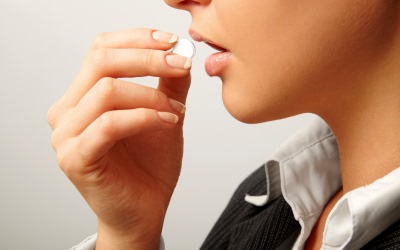Can Diet Changes Reduce the Impact of ADHD on Your Family?
When Dylan Jerrell’s doctor suggested the five-year-old take medication for attention deficit hyperactivity disorder (ADHD), his mother, Jacqueline Fellows, had her reservations. Instead, the health writer in McKinney, Texas, decided to see if her son’s wellbeing might improve with the Feingold diet, which eliminates artificial colours and flavours and some preservatives.
According to Fellows, ‘I started the Feingold diet on a Saturday, the weekend after he’d been in the principal’s office every day, and he’s only been back to the principal’s office once, and that was when (someone) fed him a hot dog. It was amazing. It’s not a silver bullet, but it’s the most powerful tool that I have for him.’ Many parents extol the benefits of restrictive diets for children whose wellness is affected by ADHD, and research is just beginning to catch up.
A landmark British study, published in The Lancet in 2007, found that artificial food colours and preservatives increase hyperactivity in children. As a result, the European Union made it a requirement that foods containing any of six specific food colours bore warning labels. Since then, a 2012 meta-analysis of 34 studies, which appeared in the Journal of the American Academy of Child and Adolescent Psychiatry, has found that artificial food colours had a small but significant effect on ADHD symptoms.
Study co-author Joel Nigg, a professor of psychiatry at Oregon Health & Science University in Portland, explained that when patients followed broader elimination diets – excluding not just artificial colours and preservatives, but other suspected triggers such as eggs – the effect was about one-third to one-sixth the effect of medication. ‘The take-away is, it’s not a waste of time,’ Nigg commented. ‘It has a chance of working – a less than 50-50 chance, but it’s a chance. It’s going to take some effort, so (if you want to try it) get a good nutritionist to advise you and talk to your child and give it a couple of months of effort.’
Fellows detailed that her son ‘didn’t go from “wild man” to calm,’ with the new diet. ‘He was just able to really listen and comprehend what you said. He could learn. Before he would get really agitated if he couldn’t do it the first time or you asked him to do something he really didn’t want to do. When he started doing Feingold, he was a reasonable child to parent. He was an easier child to parent.’ Nigg added, ‘I think it is possible that, for some kids, you would get a dramatic effect, and probably for a lot of kids, you’ll get some effect.’

Comments are closed.